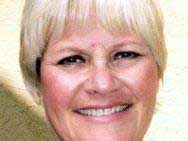Obama Targets Foreign Profits With Tax Proposal
By Ilene Davis, CFP // April 12, 2015
COULD DRIVE CORPORATIONS TO MOVE OVERSEAS

BREVARD COUNTY • COCOA, FLORIDA — If you watch Shark Tank, an American reality competition TV series that has aspiring entrepreneur-contestants make business presentations to a panel of “shark” investors, you should realize that the contestants seeking funding for their business venture must demonstrate to the sharks how they’ll not only get their investment back, but also make a substantial profit.
So, what does President Obama’s recent proposal to levy a “one time” tax on income that companies have earned overseas but haven’t brought home because it would be taxed at the U.S. 35 percent, the highest corporate tax rate in the industrialized world, do to the profit margins of American businesses, which make strategic decisions to maximize profits?
The “one-time” Obama proposal calls for a 14 percent tax on an estimated $2.1 trillion in profits piled up abroad over the years by multinational companies, as well as a minimum 19 percent tax on U.S. companies’ future foreign earnings.
Some believe this corporate tax proposal is just, may be an incentive for businesses to keep all or most of their operations in the U.S., and helps to “distribute the wealth.”
However, even if some of a company’s operations are undertaken outside of the U.S., their cost of “doing business” and their product prices are dictated by their ability to make a profit.
For those of you who think this tax proposal is a good thing for our economy, consider the following:
- Money a company pays in taxes is money no longer available to pay dividends to shareholders, wages or benefits to employees, for equipment that ultimately results in wages and benefits for the employees of the companies making that equipment, wages of employees at companies contracting to do advertising, office cleaning / maintenance, or to support local charities and events.
- Corporate taxes are really paid by you, their customers. Ask yourself: if it cost you more to go to work than you earned net of taxes, would you continue to work at a loss? The price of a product or service – whether from a local handyman or a large corporation – includes the cost of materials, labor, and overhead (building, phone, utilities, etc), and the taxes paid on any profit.
- If two products that shoppers perceive are of equal value are priced differently, odds are most will buy the one that costs less, even if it is not made in the U.S.
- Rarely does a government agency accomplish as much for the same amount of money as an individual or business providing the same product or service. So each dollar a company pays in taxes actually harms the overall economy by taking it out of circulation in an efficient business process and putting it into an unwieldy bureaucracy of inefficiency and waste.
- Those profits “sitting” overseas were generally earned overseas, and for an increasing number of global companies, over half their total revenue comes from customers outside the U.S.
Here’s a simple illustration. Suppose the material, labor and overhead of making a widget was $10, and the company wanted to make a 10 percent profit. Then they would have to make, net of taxes, $11 per widget. But suppose they had to pay 35 percent in taxes on that profit. That would be $0.35 on the $1 of profit. So, if they wanted to maintain that $1 profit for their shareholders, they would need to increase the price to their customer to $11.35 (assuming taxes are deductible).

For those who feel there is no cost to them because they don’t have any investments, here is something to carefully consider: Years ago, high tech companies in particular were having most work done by employees in the U.S., but they used the tax code to move profits to lower tax countries.
The government threatened to tax those profits based on the percent of work done in the U.S. versus the lower tax country. The industry response was basically this: you are free to do that, but remember, there are lots of engineers in the world. It is easy for us to move all those jobs overseas as well.
Bottom line, if such a tax were implemented, odds are that:
1) it would not be a “one time” tax;
2) it is money that really belongs not to the company, but to the company shareholders, so it would be forcing anyone whose retirement funds are invested in one of those companies to really be paying for the proposed tax “penalty;”
3) when you consider Americans are renouncing their U.S. citizenship in record numbers, it might just be the last straw that drives even more U.S. companies to move their tax domicile, resulting in taxes on all those profits being lost to the U.S., and even more high income tax bracket top executives moving out of the U.S.
To help you better visualize what that might mean, consider the local impact on the Space Coast economy if the Harris-Exelis Inc. merger resulted in all the top executives at Harris moving to Virginia, along with the corporate profits the new company is likely to earn.
ABOUT THE AUTHOR
 Ilene Davis, a resident of Brevard County since 1971, is a Certified Financial Planner with a bachelors degree in Mathematics from the University of Michigan, a bachelors degree in Accounting from Rollins College, and a Masters in Business Administration from Webster University. Ms. Davis became a stockbroker in 1982, earned her designation as a Certified Financial Planner in 1984, and with a desire to serve clients more on her own terms, opened her own financial consultant office in Cocoa Village in 1986. She is committed to helping each client create their own “Financial Freedom Fund,” and believes strongly in free market capitalism and a “hand up rather than a hand-out” as the best path to prosperity.
Ilene Davis, a resident of Brevard County since 1971, is a Certified Financial Planner with a bachelors degree in Mathematics from the University of Michigan, a bachelors degree in Accounting from Rollins College, and a Masters in Business Administration from Webster University. Ms. Davis became a stockbroker in 1982, earned her designation as a Certified Financial Planner in 1984, and with a desire to serve clients more on her own terms, opened her own financial consultant office in Cocoa Village in 1986. She is committed to helping each client create their own “Financial Freedom Fund,” and believes strongly in free market capitalism and a “hand up rather than a hand-out” as the best path to prosperity.













